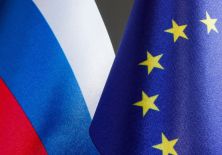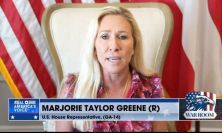
Photo from Ukrinform
Georgians started to vote for their president today in an election runoff that pits a candidate backed by the ruling party who favors a policy balancing ties with Moscow and the West against a rival who advocates a stronger pro-Western line, Reuters reports.
The runoff comes after an inconclusive first round last month, which left the ruling party in disarray.
Polls opened at 8 a.m. local time and will remain open until 8 p.m.
If the opposition challenger Grigol Vashadze wins, he is likely to use the presidency’s limited powers to push a message of integration with NATO and the European Union.
The ruling party and its candidate, Salome Zurabishvili, takes a more pragmatic line balancing Georgia’s aspirations to move closer to the West with a desire to avoid being hostile towards the Kremlin.
Ties with Russia or the West has been a dominant issue since the Russo-Georgian war of 2008.
Zurabishvili, Georgia’s foreign minister from 2004 to 2005, received 38.6 percent of the vote in the first round, ahead by just one percentage point of Vashadze, who was a foreign minister between 2008 and 2012 in the pro-Western government that was in power when the conflict with Russia broke out.
The election is seen as a crucial test for the increasingly unpopular Georgian Dream party and will be the last in which the president is selected by a popular vote.
In the future, presidents will be picked by an electoral college of 300 legislators and regional officials, as the country transitions to a parliamentary republic.
International observers said that the first round of voting had been competitive, but had been held on “an unlevel playing field” with state resources misused, private media biased, and some phoney candidates taking part.
Zurabishvili’s supporters say she would bring international stature to the presidency, but her opponents have criticized her for statements that appeared to blame Georgia for the 2008 war and her remarks about minorities that some see as xenophobic.
The opposition said that there have been attacks on activists during campaigning. One opposition coordinator was stabbed and a petrol bomb was thrown into the yard of another activist.
The ruling party has denied any link to attacks on activists, and denied attempting to unfairly influence the outcome of the vote.












